How The Miyao Brothers Embraced The BJJ Lifestyle
How The Miyao Brothers Embraced The BJJ Lifestyle
In the following article, guest contributor Erin Herle digs into the mystique of jiu-jitsu's most enigmatic competitors. Brazilian twins Paulo and Joao Miya
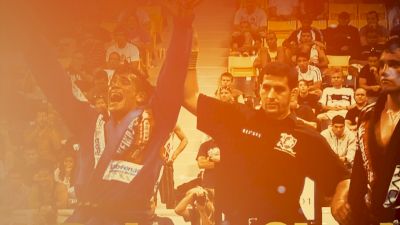
0:00 / 1:18
- Auto
- 1080
- 720
- 480
- 360
- 240
- 224
In the following article, guest contributor Erin Herle digs into the mystique of jiu-jitsu's most enigmatic competitors. Brazilian twins Paulo and Joao Miyao rose from humble origins to become two of the most successful athletes on the competition scene. Their incredible trajectory in the sport has won them many fans, yet people know little about them beyond their jiu-jitsu.
In a series of articles to be published over the coming weeks, Herle delves deep into their stories and discovers there is much more to the Berimbolo brothers than meets the eye.
When I set out to document the Miyao brothers, I went to Joao, whom I had chatted with in the past. Now icons in the world of jiu-jitsu, the brothers compete frequently and train constantly. I saw their dedication to their craft firsthand at nearly every venue: Worlds, Pans, World Pro, Abu Dhabi Combat Club, Pro League, New York Open, No-Gi Pans and Worlds, etc.
Over time, I became a familiar face to Joao and his brother, Paulo. Despite Joao's busy schedule, we made this interview happen one Sunday after open mat. My goal was to provide insights on who Joao and Paulo are as people, and not just as we see them on the mats.
Here, you can read the history of the Miyaos as discovered through an in-depth conversation with Joao.
A Note on Translation:
With the aid of Thiago Abud, a Brazilian brown belt and high-level competitor from Unity Jiu-Jitsu, the interview process was smooth. Joao talked a lot more than I thought he would, making it a fluid conversation between the three of us. For every sentence or two from Joao, Thiago would produce a monologue.
It's not that Joao doesn't know English; he's just not comfortable speaking it. He understands most of what he hears, so a few interruptions on his part meant that what Thiago was translating was both correct and added value to Joao's original words. Abud was also careful to note what was his take on the brothers, and what was fact. Together, it all helped piece together their story.
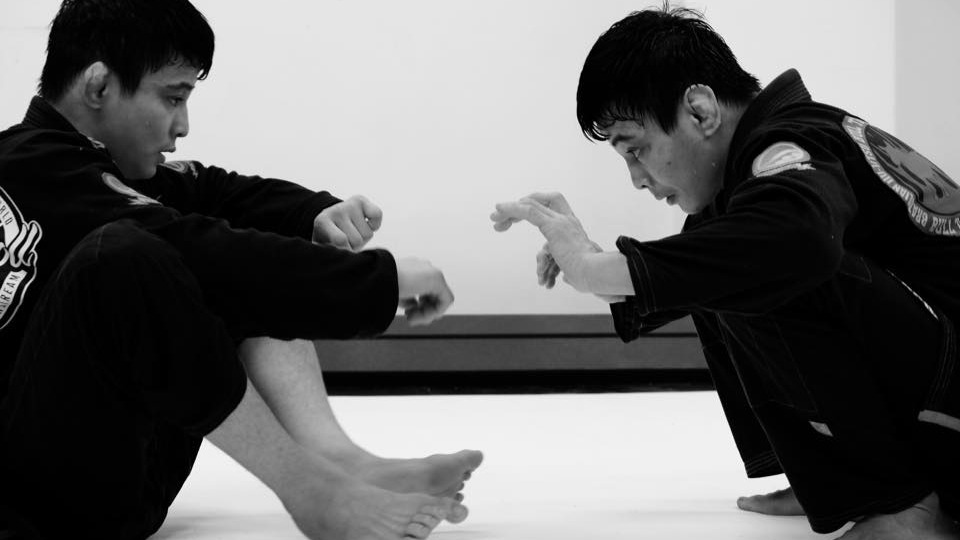
The History of the Miyao Brothers
Joao and Paulo Miyao began playing soccer at a young age in Andira, Brazil, a rural city about 250 miles outside of Sao Paulo, where they lived with their parents, older sister and brother.
They were introduced to judo by a school friend at age 14, enjoyed it enough to stick around for a couple years, and eventually earned their brown belts. "But this is because the teacher liked to give out belts," he adds. At the age of 16, they tried a trial class for jiu-jitsu at the gym where they trained judo. "I did one class and after that I never stopped. I continued training judo for six months before I switched to jiu-jitsu full-time." They trained under Adriano Carvalho for three years.
It wasn't until they were 19 that they moved to Cicero Costha's social project in Sao Paulo, which was when they started to become well-known in the competition world. Back in Andira, the gym had been funded by the city.
That changed when the new mayor was elected, who took away funding for the training. So Carvalho had to rely on tuition paid by the students, many of whom could not afford it. Training began to suffer with fewer people on the mats, so the Miyaos had to look for other opportunities.
Many people think the brothers came from a broken home, or they were poor and had no other options but to try and make money from jiu-jitsu. On the contrary, they made it their priority because they love jiu-jitsu. And because they learned that the alternative -- working a 9-to-5 job -- was not what they wanted to do with the rest of their lives. It was an average beginning that they turned into an exception. They had options and opportunities, but they chose the life of jiu-jitsu out of preference and passion.
The Miyao brothers come from a strict family of Japanese origins (their paternal grandmother immigrated from Japan). Their parents expected them to go to school and get a job like their siblings. Their older sister is a college professor at a university in the next town over, and their brother is an agronomist (someone who studies soil and plant cultivation). The bar was set.
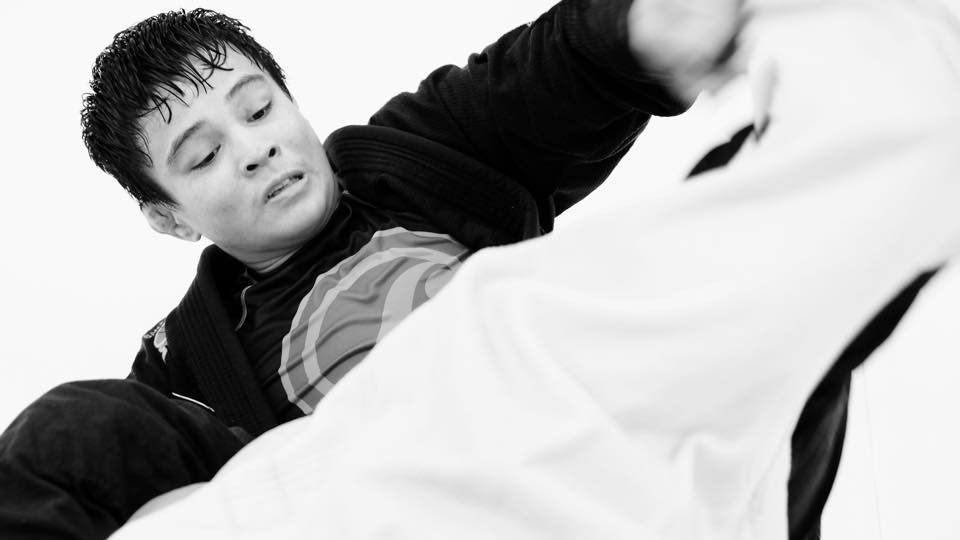
They studied at a federal university, where Joao majored in nutrition and Paulo in physical education. They stayed for a year before discontinuing their studies, which didn't exactly satisfy their parents' wishes. In Brazil, it's possible to take a tough exam to fulfill one or two job openings with the government. Hundreds of people take the test, and only the highest grades are even considered for the positions. The jobs are secure, come with incredible benefits, and as such are highly sought after.
Both brothers decided to take the exam with the goal of working for the government as researchers. Joao said: "There were about one thousand people who took this test, and Paulo got second-best grade, and I got third-best grade. The guy who had the best grade didn't even want the job because he took another test and took another job. Paulo was the boss, and I was the assistant boss. Everyone reported to me, and I reported to Paulo."
This is where their path split into two very different routes with long lists of pros and cons. If they stayed, they would lead stable lives with a guaranteed income along with benefits and a bright future. If they left, there were a lot of uncertainties tied with unimagined opportunities. For someone who recognizes that hard work pays off, even when you aren't fully aware of the exact details or how it will amount to success, risk-taking is inevitable.
They trusted that time on the mats, dedication to the sport and non-stop competition would lead them to both happiness and stability. And at a young age, this was the choice they made.
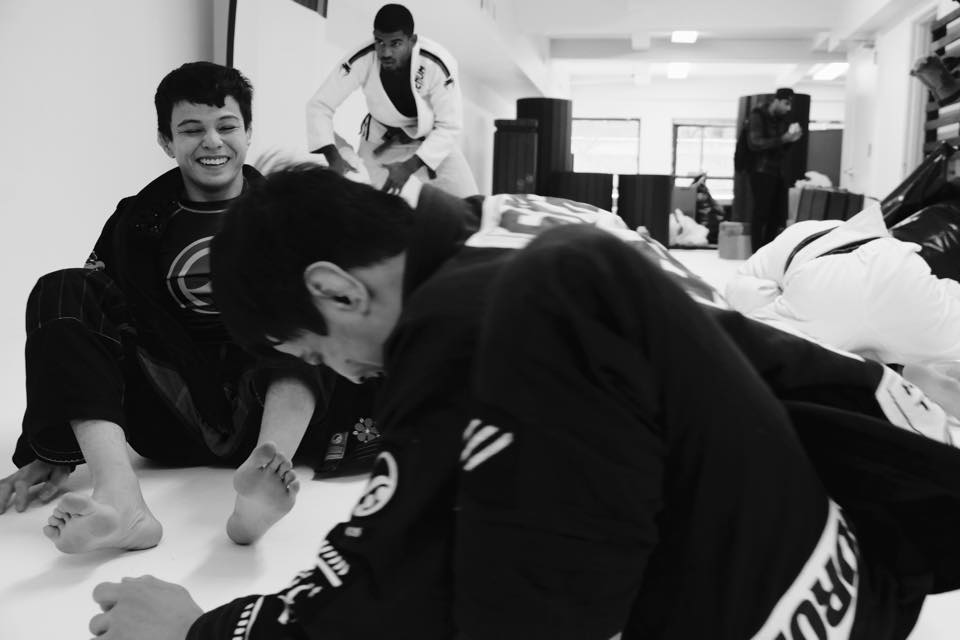
It was a natural choice. "Even if I made my parents upset, I was going to pursue jiu-jitsu," says Joao. "Between the academy's status and my distaste for the job, my brother and I decided to move to Sao Paulo." It was in the academy of Marco Barbosa that they met Murilo Santana -- who owns the academy where they currently train in NYC -- and their professor, Cicero Costha.
They were only at Barbosa's gym for a month before moving to train with Cicero full-time. There, they had training partners such as Leandro Lo, Yago de Souza, Wellington Luis, Thiago Barros and more.
As we saw in the 2014 BJJ Hacks video, the brothers trained and lived on the mats. Joao remembers what his life was like not too long ago: "Our lives were comprised of training, competing, and living at the gym. That was it. Only one year ago, Cicero started paying for an apartment near the gym for his competitors to live. Before that, we all lived in the gym. The number started to grow over the years."
Enduring those circumstances to meet their athletic needs wasn't easy -- when it came to food, it was a question of quantity, not quality. "If I was cutting weight, I would just change the quantity of the food, not the food itself. You don't need to eat organic, or buy the best food to be the best. This is my philosophy. If you think that you feel great when you eat pizza before you train, you go for it. You don't change your diet and expect to be so much better at jiu-jitsu. You have to do what you're used to doing. It's all psychological."
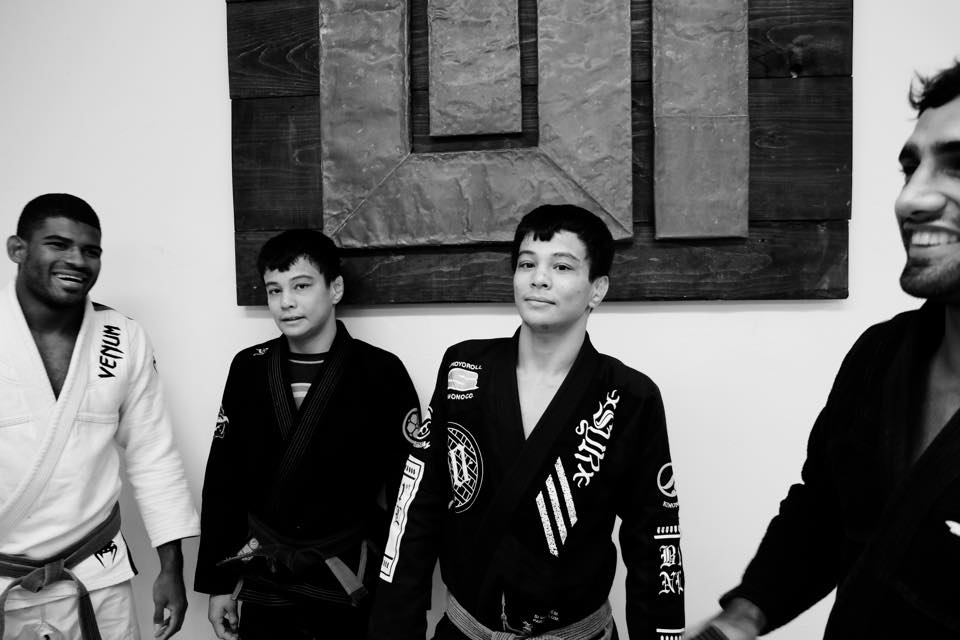
L-R: Yago de Souza, Joao Miyao, Paulo Miyao, Leandro Lo
Joao's first big tournament was the 2011 IBJJF Pan Jiu-Jitsu Championship in Carson, California, as a blue belt. The only way he was able to make the trip to the United States was by winning the light absolute (which combined rooster weight, light featherweight and featherweight divisions) at the Paulista State Championship. The gold medalist earned a travel package for flight and hotel to Pans. He closed it out with his brother and Paulo gave him the package.
We see the brothers close out tournaments regularly, even as recently as Pans 2015, when they conquered the light-featherweight division together. But a gold medal or title is much less than a trip to California to compete in the largest tournament in the world.
When I asked Paulo how the decision was made for Joao to take the package, he responded: "Because he is my brother." There was no discussion between the two. Ever since, the choice for who would get the gold is determined by who got it last.
Soon after the Pans, Joao had earned yet another travel package, this time to the 2011 Abu Dhabi World Pro, after winning the white / blue light absolute at the Gramado trials. In Abu Dhabi, he placed second in his division and won the absolute, which earned him a total of $4,500 in cash.
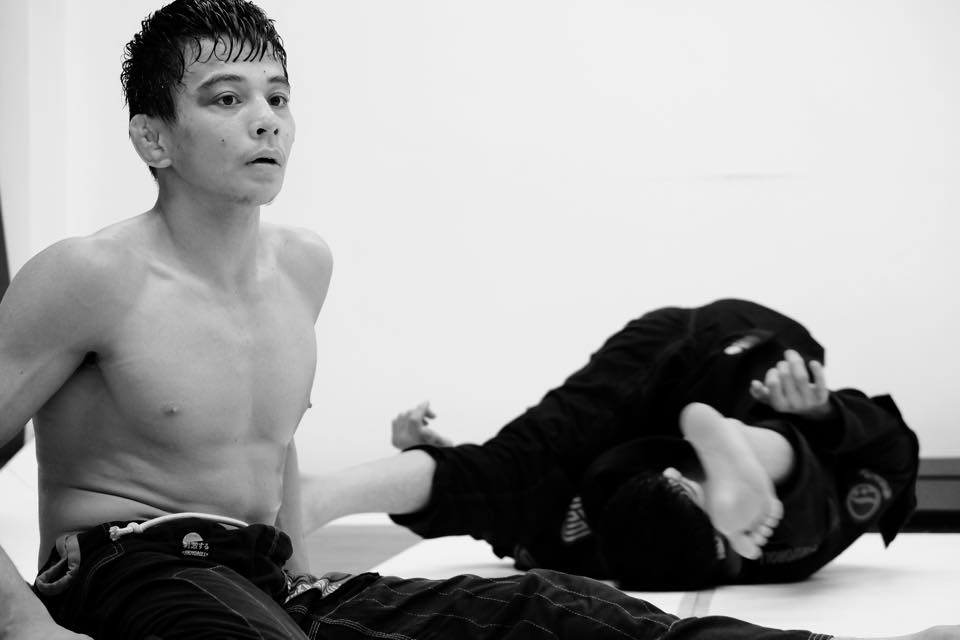
Paulo (left) & Joao (background)
Not only did he receive his purple belt soon after from Cicero Costha, but he also secured his trip to Worlds the following month, this time with Paulo in tow. When they closed out the light featherweight purple belt division, Paulo took the top spot.
And then they earned their first big sponsorship, another step in what would become a real career for the brothers. Convincing their parents that they could survive the jiu-jitsu athlete lifestyle became easier when Joao came home with his check from Abu Dhabi. Since then, their family has even watched them compete.
To be continued -- in upcoming articles, we'll take a personal look at their training and daily routines, and get to know more of their very different personalities. Parts 2 and 3 coming soon.
Related articles:
• The Miyao Brothers vs. The World: Beating the Berimbolo
• Quit Or Get Tough: Training At Cicero Costha's Gym In Sao Paulo
• Paulo Miyao Just Loves Jiu Jitsu
• Miyaos Bros Drilling At Unity Gym In New York
In a series of articles to be published over the coming weeks, Herle delves deep into their stories and discovers there is much more to the Berimbolo brothers than meets the eye.
Getting To Know The Miyao Brothers
By Erin Herle / All photos by Jesse BellWhen I set out to document the Miyao brothers, I went to Joao, whom I had chatted with in the past. Now icons in the world of jiu-jitsu, the brothers compete frequently and train constantly. I saw their dedication to their craft firsthand at nearly every venue: Worlds, Pans, World Pro, Abu Dhabi Combat Club, Pro League, New York Open, No-Gi Pans and Worlds, etc.
Over time, I became a familiar face to Joao and his brother, Paulo. Despite Joao's busy schedule, we made this interview happen one Sunday after open mat. My goal was to provide insights on who Joao and Paulo are as people, and not just as we see them on the mats.
Here, you can read the history of the Miyaos as discovered through an in-depth conversation with Joao.
A Note on Translation:
With the aid of Thiago Abud, a Brazilian brown belt and high-level competitor from Unity Jiu-Jitsu, the interview process was smooth. Joao talked a lot more than I thought he would, making it a fluid conversation between the three of us. For every sentence or two from Joao, Thiago would produce a monologue.
It's not that Joao doesn't know English; he's just not comfortable speaking it. He understands most of what he hears, so a few interruptions on his part meant that what Thiago was translating was both correct and added value to Joao's original words. Abud was also careful to note what was his take on the brothers, and what was fact. Together, it all helped piece together their story.

The History of the Miyao Brothers
Joao and Paulo Miyao began playing soccer at a young age in Andira, Brazil, a rural city about 250 miles outside of Sao Paulo, where they lived with their parents, older sister and brother.
They were introduced to judo by a school friend at age 14, enjoyed it enough to stick around for a couple years, and eventually earned their brown belts. "But this is because the teacher liked to give out belts," he adds. At the age of 16, they tried a trial class for jiu-jitsu at the gym where they trained judo. "I did one class and after that I never stopped. I continued training judo for six months before I switched to jiu-jitsu full-time." They trained under Adriano Carvalho for three years.
It wasn't until they were 19 that they moved to Cicero Costha's social project in Sao Paulo, which was when they started to become well-known in the competition world. Back in Andira, the gym had been funded by the city.
That changed when the new mayor was elected, who took away funding for the training. So Carvalho had to rely on tuition paid by the students, many of whom could not afford it. Training began to suffer with fewer people on the mats, so the Miyaos had to look for other opportunities.
Many people think the brothers came from a broken home, or they were poor and had no other options but to try and make money from jiu-jitsu. On the contrary, they made it their priority because they love jiu-jitsu. And because they learned that the alternative -- working a 9-to-5 job -- was not what they wanted to do with the rest of their lives. It was an average beginning that they turned into an exception. They had options and opportunities, but they chose the life of jiu-jitsu out of preference and passion.
The Miyao brothers come from a strict family of Japanese origins (their paternal grandmother immigrated from Japan). Their parents expected them to go to school and get a job like their siblings. Their older sister is a college professor at a university in the next town over, and their brother is an agronomist (someone who studies soil and plant cultivation). The bar was set.

From University to Government Jobs
They studied at a federal university, where Joao majored in nutrition and Paulo in physical education. They stayed for a year before discontinuing their studies, which didn't exactly satisfy their parents' wishes. In Brazil, it's possible to take a tough exam to fulfill one or two job openings with the government. Hundreds of people take the test, and only the highest grades are even considered for the positions. The jobs are secure, come with incredible benefits, and as such are highly sought after.
Both brothers decided to take the exam with the goal of working for the government as researchers. Joao said: "There were about one thousand people who took this test, and Paulo got second-best grade, and I got third-best grade. The guy who had the best grade didn't even want the job because he took another test and took another job. Paulo was the boss, and I was the assistant boss. Everyone reported to me, and I reported to Paulo."
We did this for seven to eight months when we were 18. But we said to ourselves, 'Why are we going to settle for this in our life? This is so boring. We never want to have a regular job in our lives.' This is what secured our belief that jiu-jitsu would be our lifestyle. We were sure.
This is where their path split into two very different routes with long lists of pros and cons. If they stayed, they would lead stable lives with a guaranteed income along with benefits and a bright future. If they left, there were a lot of uncertainties tied with unimagined opportunities. For someone who recognizes that hard work pays off, even when you aren't fully aware of the exact details or how it will amount to success, risk-taking is inevitable.
They trusted that time on the mats, dedication to the sport and non-stop competition would lead them to both happiness and stability. And at a young age, this was the choice they made.

Leaving Everything Behind
It was a natural choice. "Even if I made my parents upset, I was going to pursue jiu-jitsu," says Joao. "Between the academy's status and my distaste for the job, my brother and I decided to move to Sao Paulo." It was in the academy of Marco Barbosa that they met Murilo Santana -- who owns the academy where they currently train in NYC -- and their professor, Cicero Costha.
They were only at Barbosa's gym for a month before moving to train with Cicero full-time. There, they had training partners such as Leandro Lo, Yago de Souza, Wellington Luis, Thiago Barros and more.
By training there, we got better really fast, of course. We spent six to seven hours on the mat training a day, and it's been that way ever since.
As we saw in the 2014 BJJ Hacks video, the brothers trained and lived on the mats. Joao remembers what his life was like not too long ago: "Our lives were comprised of training, competing, and living at the gym. That was it. Only one year ago, Cicero started paying for an apartment near the gym for his competitors to live. Before that, we all lived in the gym. The number started to grow over the years."
Suddenly, there were 15 guys living together in the gym. For food, we only had a microwave; no kitchen. The food was always one meal: pasta and tuna fish from the can. We didn't have pasta sauce, even, just the juice from the tuna. We didn't have money for good food because we had to use it toward competing.
Enduring those circumstances to meet their athletic needs wasn't easy -- when it came to food, it was a question of quantity, not quality. "If I was cutting weight, I would just change the quantity of the food, not the food itself. You don't need to eat organic, or buy the best food to be the best. This is my philosophy. If you think that you feel great when you eat pizza before you train, you go for it. You don't change your diet and expect to be so much better at jiu-jitsu. You have to do what you're used to doing. It's all psychological."

The Big Break
Joao's first big tournament was the 2011 IBJJF Pan Jiu-Jitsu Championship in Carson, California, as a blue belt. The only way he was able to make the trip to the United States was by winning the light absolute (which combined rooster weight, light featherweight and featherweight divisions) at the Paulista State Championship. The gold medalist earned a travel package for flight and hotel to Pans. He closed it out with his brother and Paulo gave him the package.
We see the brothers close out tournaments regularly, even as recently as Pans 2015, when they conquered the light-featherweight division together. But a gold medal or title is much less than a trip to California to compete in the largest tournament in the world.
When I asked Paulo how the decision was made for Joao to take the package, he responded: "Because he is my brother." There was no discussion between the two. Ever since, the choice for who would get the gold is determined by who got it last.
Soon after the Pans, Joao had earned yet another travel package, this time to the 2011 Abu Dhabi World Pro, after winning the white / blue light absolute at the Gramado trials. In Abu Dhabi, he placed second in his division and won the absolute, which earned him a total of $4,500 in cash.

Not only did he receive his purple belt soon after from Cicero Costha, but he also secured his trip to Worlds the following month, this time with Paulo in tow. When they closed out the light featherweight purple belt division, Paulo took the top spot.
And then they earned their first big sponsorship, another step in what would become a real career for the brothers. Convincing their parents that they could survive the jiu-jitsu athlete lifestyle became easier when Joao came home with his check from Abu Dhabi. Since then, their family has even watched them compete.
My parents realized this was a career when I won in Abu Dhabi as a blue belt and got money. They started to believe that we could support ourselves in this lifestyle. My mom has seen me compete, but not overseas; only in Brazil, like local competitions. But we like to focus and not worry about family at the competitions.They aren't much different from most competitors, there.
To be continued -- in upcoming articles, we'll take a personal look at their training and daily routines, and get to know more of their very different personalities. Parts 2 and 3 coming soon.
Related articles:
• The Miyao Brothers vs. The World: Beating the Berimbolo• Quit Or Get Tough: Training At Cicero Costha's Gym In Sao Paulo
• Paulo Miyao Just Loves Jiu Jitsu
• Miyaos Bros Drilling At Unity Gym In New York